Ash Reddington is a talented Irish actor, writer and filmmaker who is based in New York City. In this short comedy film, her character Svetlana goes window shopping in Manhattan during lockdown.
You can find out more about Ash at her Backstage page.

Ash Reddington is a talented Irish actor, writer and filmmaker who is based in New York City. In this short comedy film, her character Svetlana goes window shopping in Manhattan during lockdown.
You can find out more about Ash at her Backstage page.

Geraldine McCarthy lives in West Cork. She writes short stories, flash fiction and poetry. Her work has been published in various journals, both on-line and in print.
My temples throbbed. I had stayed up until two am finalising lesson plans. Scanning the classroom, I noticed Geoffery twirl the pencil in the sharpener, his head bent, deep in concentration.
I had put him at the back, next to Amelia, who threw sideways glances at him, when she wasn’t frowning over her sums.
The contrast between them was striking; him dark-haired and sallow-skinned, her blond and pale.
Some children wandered from their seats.
I left my vantage point at the top of the room and crouched down to correct Rebecca’s maths. Suddenly I heard a piercing cry behind me. I shot up and looked around.
“Amelia, what’s the matter?” I asked. It was my first day in my first job.
“It’s Geoffery,” Amelia sputtered, “he stabbed me!”
I fixed him with my most withering look. He met my eye and gave a little smirk.
“Come here, Amelia, let me look at your arm.”
The little girl got up from behind her tiny desk and came up to me, pouting and looking at the ground as she walked.
“It’s ok. There doesn’t seem to be much of a mark. Is it sore?”
Amelia nodded her head, her lips downturned, fresh tears forming in her eyes.
“Ok, let’s get you a sticker for being a brave girl.”
I put the butterfly sticker on Amelia’s pinafore and told her to sit on the teacher’s seat for a little while.
They had never mentioned pencil stabbings in teacher training college.
“Geoffery,” I said, “This is the third time this morning I have had to speak to you. Come with me.”
He took his time getting up from the chair. There was still the hint of a smirk about his mouth.
“We’re going to the principal’s office.”
A hush fell over the class.
I nodded to the teaching assistant, opened the door and marched down the hallway. Geoffery sauntered after me. I knocked on the door.
“Come in,” a voice said from within.
I entered, Geoffery in my wake, and we sat on the visitors’ chairs.
“Is there a problem?” Mrs Murphy asked, looking up from the swathes of paperwork which covered her desk.
“Yes, well, there has been a nasty incident,” I said. There was a moment’s silence.
“I did nothing, Aunty,” Geoffery piped up, shooting me a look.
My jaw dropped. I managed to rearrange my expression into neutral.
“That’s not quite true,” I said. “You hurt Amelia and she was very upset.”
“Well, I’m sure he didn’t mean it,” Mrs Murphy said. She began to stack her papers and looked pointedly towards the door.
I waited a moment. “Well, sorry for disturbing you,” I said, rising from my chair.
Mrs Murphy nodded and began filling in a form.
I walked down the hallway in silence, Geoffery by my side. When we reached the classroom door, he looked up at me and stuck out his tongue.
“Were they troublesome?” I asked the teaching assistant, who wore a strained expression.
“No, not at all,” she replied, “but I think that’s the inspector’s car outside.”
I went to the window and saw a grey-suited, grey-haired man alight from his car and pull a leather briefcase from the back seat.
Retrieving the bulging folder of lesson plans from my desk, I hugged it to my chest and cast my eye around for Geoffery. There he sat in his little chair, cradling the pencil sharpener in his tiny, tiny little hands.
Geraldine McCarthy

Lipstick smudged in empty coffee cup.
You crush it nervously in your trembling hands,
waiting for his form in the doorway
and he does come,
and fixes his eyes firmly around the room
until he finds yours.
He beckons and you follow him.
Not waiting to hold the door open,
he hurries across the street
away from the thousand eyes of the night.
He bundles himself into his new Mercedes,
lights up a cigar and waits.
He thinks of home, his boring infertile wife,
she, a company director, with all the trappings
that he can’t live without.
But he wants more.
He watches you in the rear view mirror,
and ponders the ravages of time etched in your face.
You have the look of children
and burgers on Sundays,
wearing faded denim jeans
and worn outdated blouse
under an oversized belted raincoat.
Hard to believe you were once a follower of fashion.
Locking your door, he drives into the night air
and stops at a laneway, concealed entrance.
He’s been here before, you can tell.
In the darkness he spits his cigar from his mouth,
and heaves his obese body into your seat,
smoke breath heavy on your face.
You close your eyes and think of the money lender
and hope he’ll be satisfied in the morning.
Relaxing back in the driver’s seat,
he pulls two fifty euro notes from his inside pocket
and stuffs them into your sweaty palm.
‘I’ve had better’.
Sickness and anger rise in your throat
but you pull yourself together, look away
and think of your children,
born to deprivation,
brought up on love.
Home now, the whiff of alcohol greets you at the door.
You spot your inebriated husband
slouched in the living room.
His bloodshot eyes stare through yours.
‘How much’?
You toss one fifty euro at his feet,
and hope, more than anything, he’ll let you sleep tonight.
In the kitchen your children huddle in a corner.
On the table, a bottle of cheap perfume,
six rice krispie buns; one from each child
and a homemade birthday card.
A candle lights up each face as you enter.
‘Happy birthday mammy, we love you’.
Effortlessly, you carry them up the stairs
and kiss each one goodnight.
In the quiet of your room you press your apron
close to your tear stained face,
taking comfort in its’ old familiar smell.
You cry buckets.
Breda Hyland


I wrote this poem a couple of years ago (and well before Covid 19), but I think the issues it refers to still stand.
Come friendly bombs and fall on Slough
It’s time to say this is enough
The future’s looking very tough
Don’t hold your breath
Don’t be disabled or be sick
ESA won’t miss a trick
You’re made to feel like you are thick
By DSS
And now we’ve left the EEC
There’s no appeal for you and me
Beyond the Tory hierarchy
Which we detest
Come friendly bombs and fall on Slough
And help us as we mourn for how
Our futures bright have vanished now
Compassion’s death
Mary Tynan

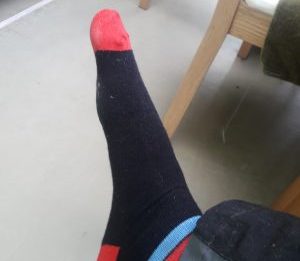
It’s not helped by the weather. I mean, it’s definitely that time when you start thinking about getting away. Dawn chorus is actually getting louder; maybe it’s just the contrast. I mean, there’s nothing happening.
Anyway, that’s the time for me. We always used to set off then. Car was packed, evening before, and then we’d eat something. And I mean something; Mum was always thrifty – Dad said ‘Mean.’ So, whatever was left in the fridge was cooked and eaten, then off to bed, too excited to sleep. Eyes shut, make it pass quicker, then woken by my dad saying “Shhhh, it’s time.” We’d dress in that curious garb only worn for holidays. Dad’s weird trousers that had zips just above the knees so they converted into badly fitting shorts. Then downstairs without breakfast, off through the empty streets. How long before we see another vehicle?
Like now. The rumble behind all the other sounds is gone. But we are still waiting to go away, to escape, to be released, for the summer, vacation, va-ca-tion?
Well it seems more vacant than a holy day. I mean, the next step is unlikely to be a celebration. It is not a return. The new normal is not so easy to shed; it has to be tailored to fit the circumstances. We’ve not been here before, and this journey is not a reversal – more a gradual course adjustment, a slight curve. People say ‘when it’s over’ but can it be? Over the horizon perhaps? Which means we might glimpse further ahead. Are we there yet? Yes, we’re always there. Is there a real ‘us’? Maybe the immediate household.
The family has, for some, returned to staycation; children are suddenly familiar with family. For some, this will be a positive discovery; for others it will be ‘domestic.’ For some, it will be duty or servitude as carers; for others solitary ‘lives in parallel.’ Our main community is. in many cases. now digital and is itself fragmented.
So, which ‘us’ are they briefing? Who is in it together? The death rate among the solitary and the marginal has risen, the rest shunted into a virtual world in which social relations are through a screen, muffled, partial, and easily monitored. Does this contribute to a sense of disempowerment; of being done unto? It might be a contributory factor to recent rise in active protest. Is that where ‘we’ need to be next?

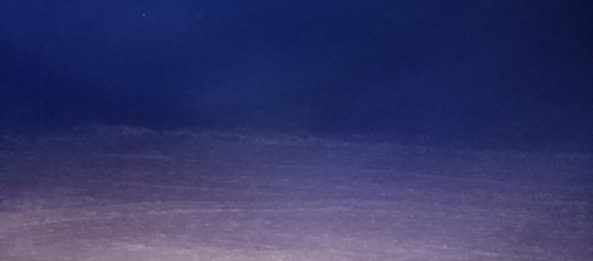
Mary is an actor, writer, and director, as well as the artistic director of Notes From Xanadu. She does not claim any expertise as a photographer, but is merely blessed to live in a beautiful location. As well as landscapes, she also likes to photograph food! You can view Mary’s actor website at www.marytynan.ie
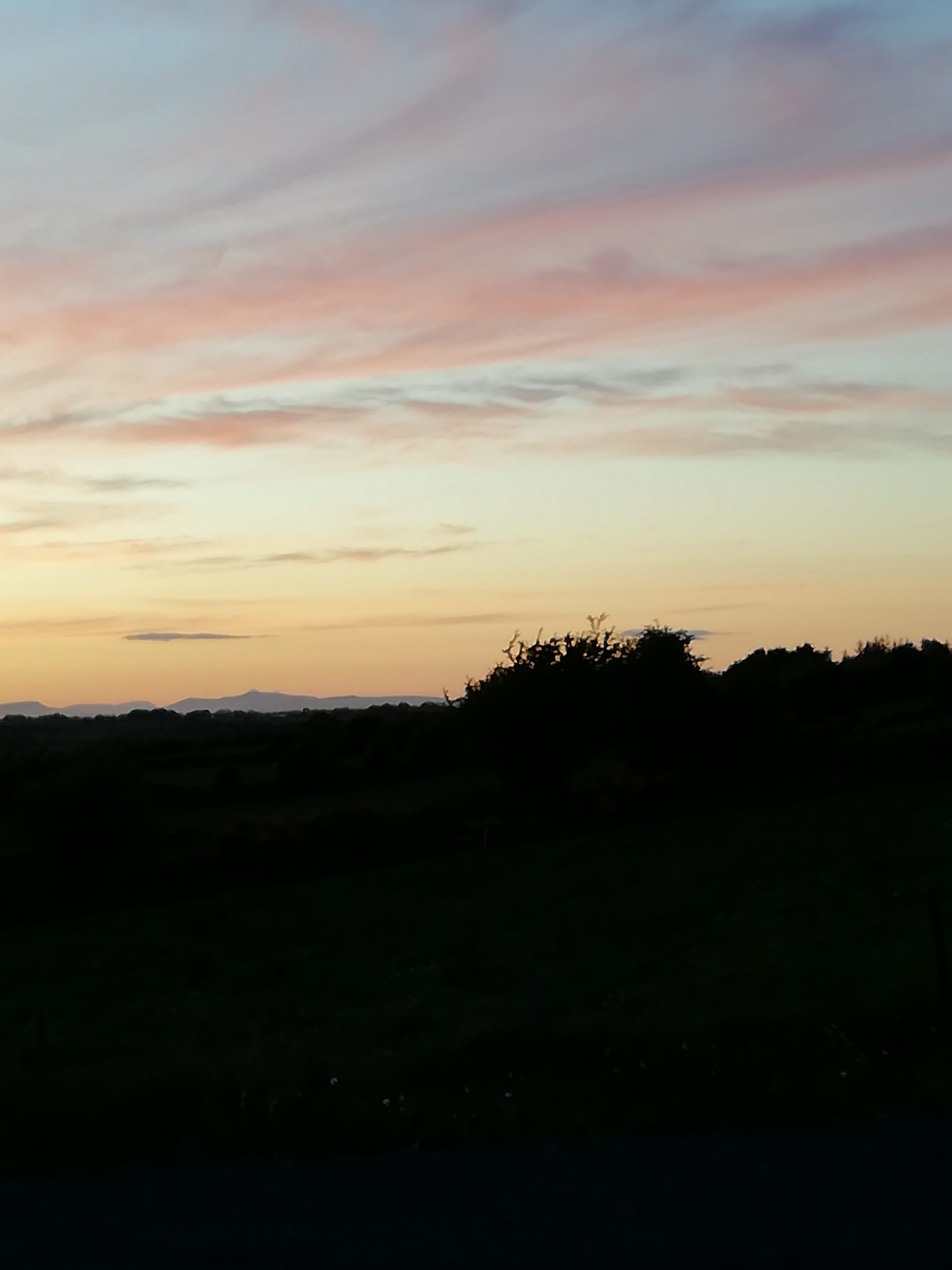






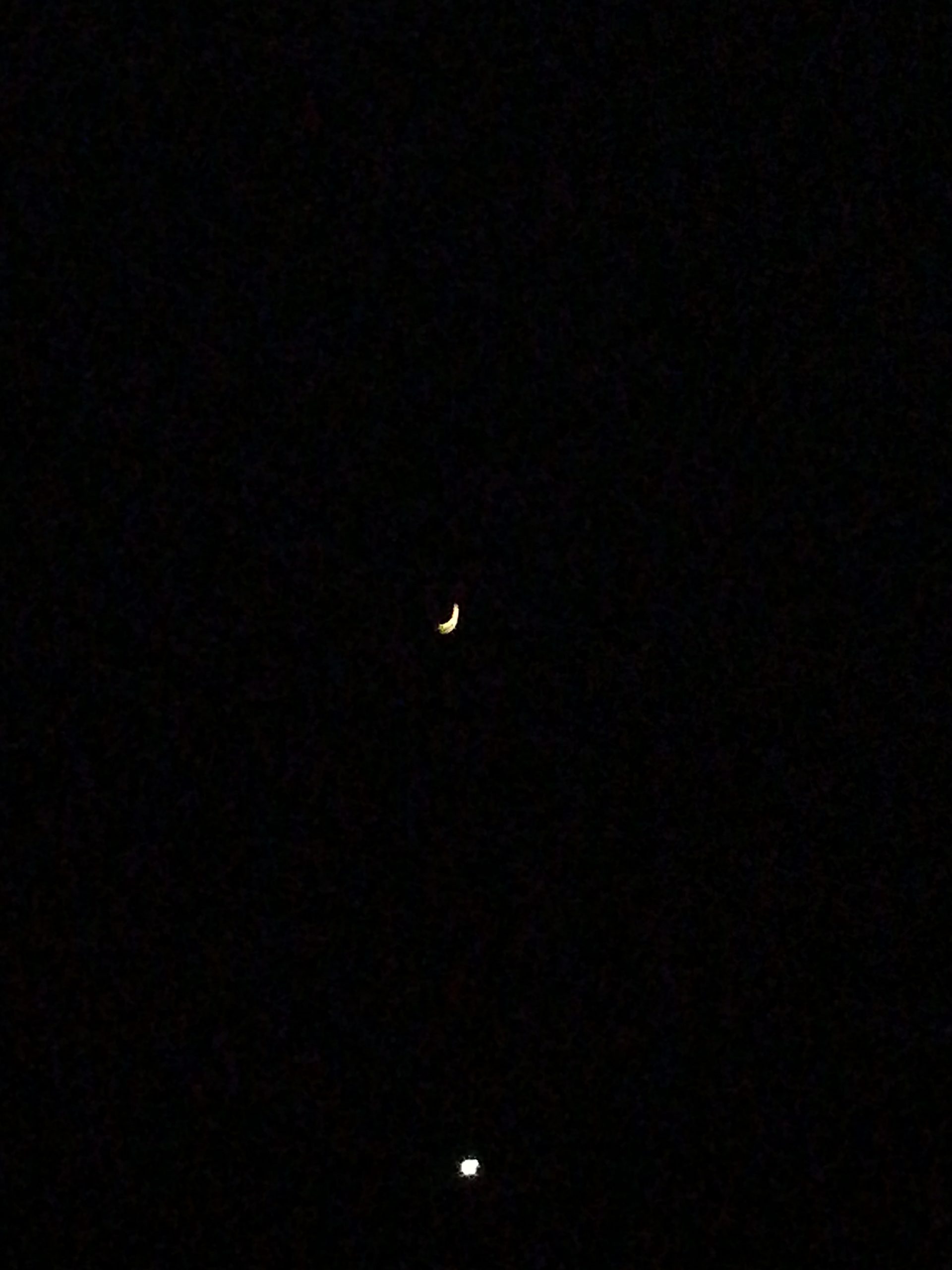

Welcome back to Autumn Black, one of our talented female singer-songwriters. Here she performs her most recent composition, “Only Real Necessity.”
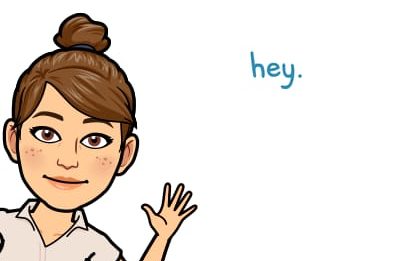
It has been a while, dear readers, since I have been sat down and writing. Much has happened in ‘lockdown’ which I won’t get into right now.* Yes, I prefer the term ‘lockdown’ to ‘self-isolation’. Like, I’m not self-isolating. I haven’t chosen to isolate myself. I’m not isolating because I’m not by myself. ‘Self-isolation’ is a very confusing term. We are, according to public health advice, limiting our interactions with people outside of our core home unit to the absolute essentials. What do we call that?** It’s definitely not ‘self-isolation’ in my book.
‘Lockdown’ is far more sexy and intimates some kind of purpose or goal, maybe. If you say it the right way. You can’t say it in a sad or whiny tone. You have to say it with authority, possibly with your eyes slightly wider than usual, giving you a bit of a crazy look. Practice in the mirror.
We started ‘lockdown’ gloriously. Well, I think I did. I spent hours in the kitchen making wonderful exotic dinners for the family.*** I’ve since lost count of the cheese toasts and teas I’ve consumed. Unfortunately my waistline insists on bearing evidence.****
We have managed to avoid the whole artisan, bread starter craze but only because I’ve been there and done that. That ish is worse than caring for a baby. It gets everywhere and becomes all-consuming. The only excuse you’ll ever have for keeping a live starter is if you’re baking for your neighbourhood. Don’t bother, otherwise.***** We did build an open fire pit in the garden so we’ve reverted back to the African way of cooking over the open fire a bit. That has been particularly enjoyable. Possibly have gone feral making pallet furniture. Yet to be completed.
On the food note, I decided to sign up to a cooking newsletter on email.****** First edition just arrived. Full of soup recipes. Soup. Even the word: soup. Say it. The mouthfeel of the word soup is not even satisfactory. If soup is not accompanied by a nice big fat plate of toasted sandwich with everything in them (preferably snackwich style for dunking), it’s not worth it. I don’t know how I feel about drinking my food. Never got into the juicing craze. Smoothies need to be thick enough to eat with a spoon.*******
I also have just realised thanks to the red underline that snackwich is probably not a well known term. South Africans call toasted sandwiches with the sealed edges from the home toasting machine a snackwich does in fact have a good mouthfeel when you say it. Far more satisfactory than soup.
Cooking newsletter did not just seem to put soup on a pedestal. It advocated biscuit making with lard. Yeah yeah to the pros. I get it. Crispy biscuits. Ireland has spoiled me for life. Butter is queen. Lard is not. I love bacon, don’t get me wrong. But knowing the fat from the abdomen of a pig is inside my delicious crispy biscuit is just not a great feeling at all. Similar to handling raw chicken. It makes me want to scrub, violently, with soap and hot water. At least I won’t catch corona in my kitchen.
‘Til next time.
*Suffice to say, I cackle every time I see a man saying we’re all inadequate if we haven’t learned a new skill, blah blah.
**Being A Responsible Human?
***Didn’t last a week.
****Trying not to bare the evidence…definitely not a bikini ready summer, lads.
*****You’re welcome.
******Feels like 1999 again.
*******Smoothies count as food only when fruit to liquid (yoghurt) ratio is correct.

Breda is a writer from the West of Ireland. She tells us, “I write for a pastime, about ordinary, everyday things, but I like to throw my imagination to the wind and sometimes I laugh at what comes into my mind! I write best in my head, when I’m driving through the fields, out in the open air. It’s harder to come home and put it down on paper, but I’m usually happy with the end result.”
Please note that this poem contains adult themes.
You drove me to Galway
in your Ford Granada,
to buy me a dress, you said,
for the local Macra social.
At 62 you were a devoted member,
I was a novice at 29.
Your car tax was out of date so you
hid it in a laneway nearby.
I stepped out in deep puddles
that soaked my stilettoed feet.
You whisked me past Moons in case
I spotted the designer dress in their window.
Anthony Ryan’s winter sale –
The best in the west, you said.
You bought your last suit there
twelve years ago, maybe more.
I tried on and hinted disapproval
at the colour and the style,
You couldn’t wait to get your hands on it
reduced to half price.
No time for food, you said,
you had to check the Charolais cow
and the new-born calf –
a valuable pedigree heifer.
Next year at the Claremorris show
she’d make the best continental.
You’d win the cup, not to mention the
money and the photo in the Western
and I’d get my hair done,
that place in the corner, you said,
where your mother goes,
she gives good discount on a Friday.
You had your way as usual.
We ate the bacon and cabbage,
cooked by your mother,
when we got home
And you the lucky girl, she said,
you’ll never want for anything.
Prosperous farmer, fine house
I puked her words (and the dinner) down the sink.
Later that night at the Macra social,
like the pedigree in the ring,
you paraded me around the ballroom,
proud of the female trophy on your arm.
And they all gazed and whispered.
And she an only child, they said.
And her land adjoining his, they said.
And wasn’t he always after young ones anyhow.
On the way home, another laneway,
the back seat covered in dog hairs.
My brown hair fell into the half open bag
of Maverick (or was it Frisky).
The plug of the calf dehorner
dug into my lumbar vertebrae.
Thank god it was round,
the damage superficial
And you held me like the calf
in the crush, about to be castrated,
never going to get away
and neither was I.
Your arthritic limbs caused
awkward manoeuvres in the dark.
You moaned and groaned agony and ecstasy.
Was the pleasure really worth the pain?
My dress was full length and fitted,
you cursed because it was waisted
you never wasted anything in your life before,
and I thanked god it was over
And my mind drifted back
to the dress in the window in Moons,
glad I didn’t fall for it after all –
I’m almost sure it was short and flared.
Breda Hyland

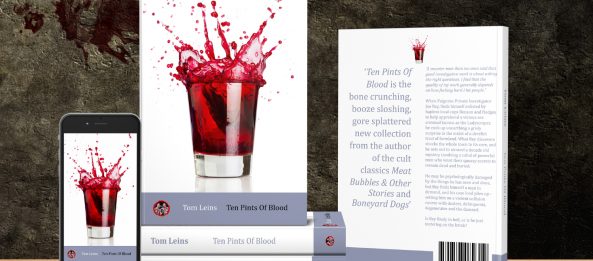
Craig runs a small organisation, Close To The Bone Publishing (http://www.close2thebone.co.uk), which is dedicated to helping authors into print and onto a viable sales platform’ sidestepping publishing agents and other such complexities. You can contact him on close2thebone@hotmail.com with any queries regarding publishing and cover art. He’s a former soldier and is now dedicated to promoting safety and health in the workplace as an occupation. Craig currently live in Warwickshire, England with his wife and two children. He has a personal blog at http://www.craigrobertdouglas.co.uk.
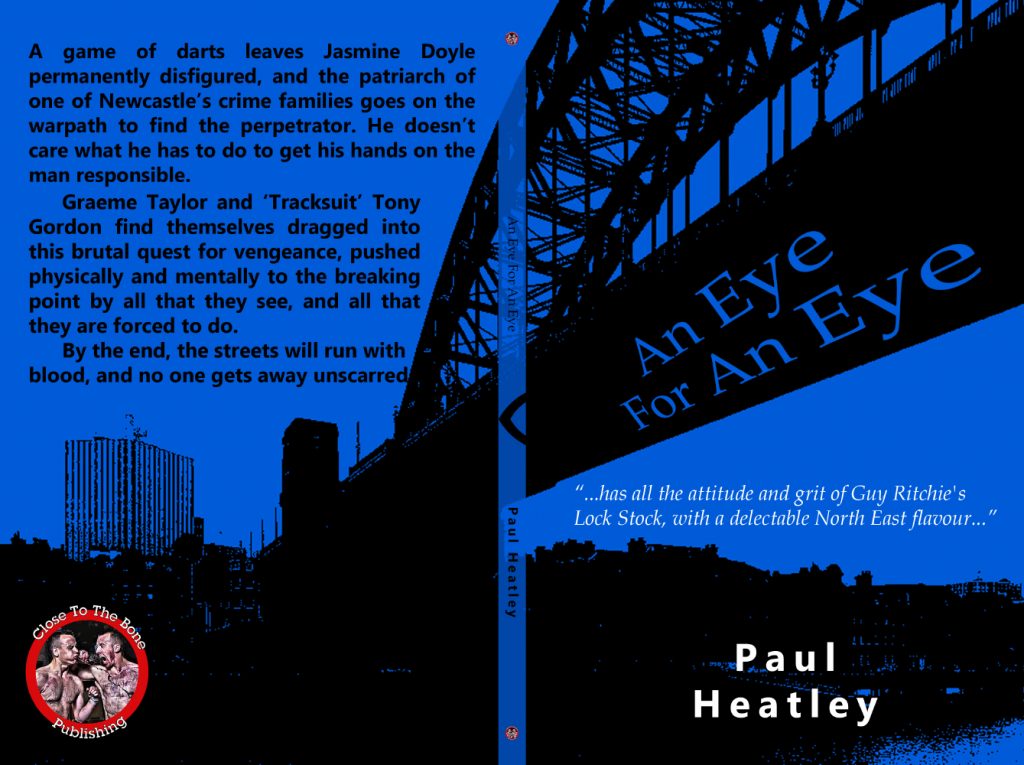
An Eye For An Eye, Date of Releas : 2017, Author: Paul Heatley.
“1 of 3 books in a trilogy. The most difficult part was trying to get an eye on all 3 spines to match up correctly.”
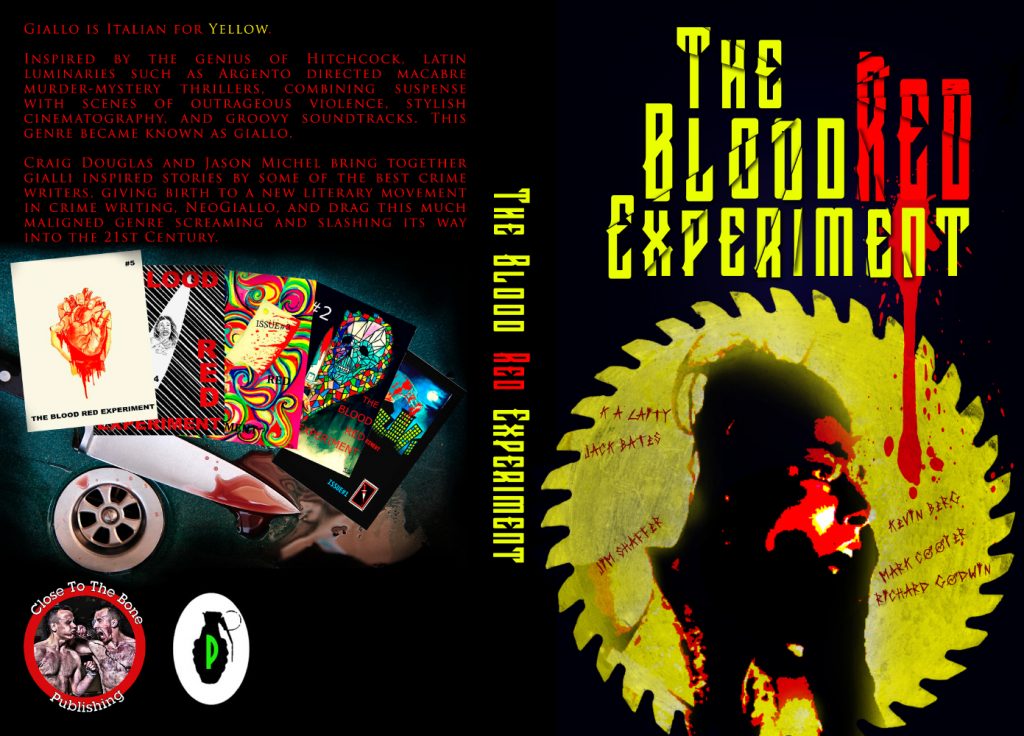
The Blood Red Experiment, Date of Release: 2018, Author: Anthology.
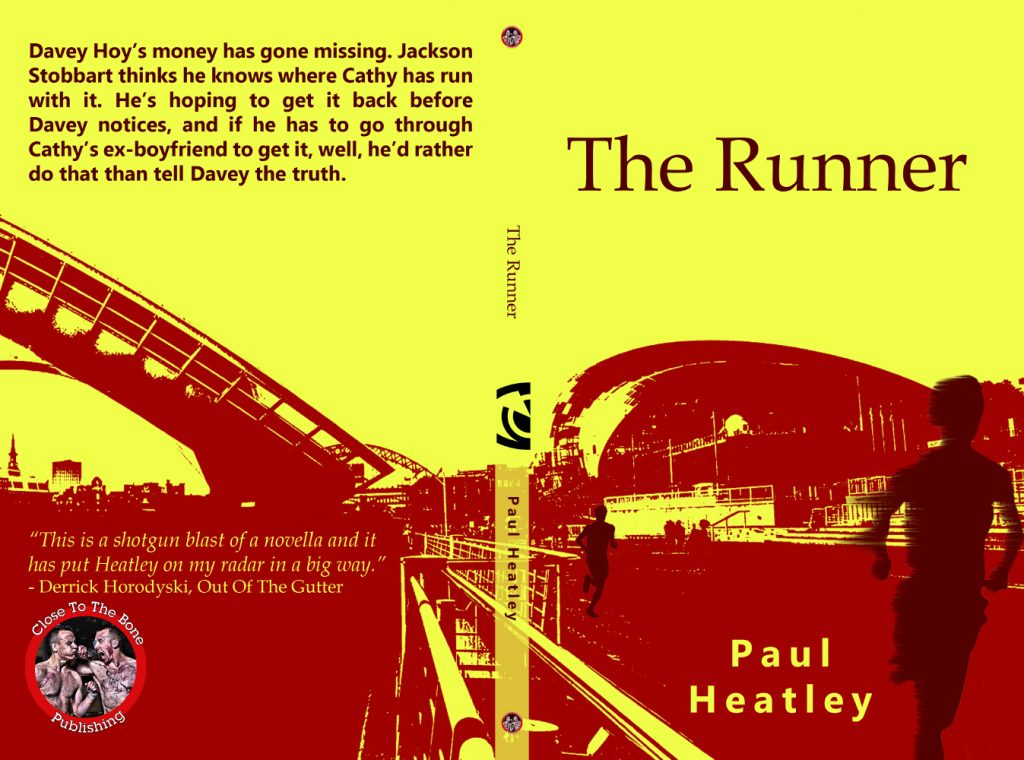
The Runner, Date of Release: 2018, Author: Paul Heatley.
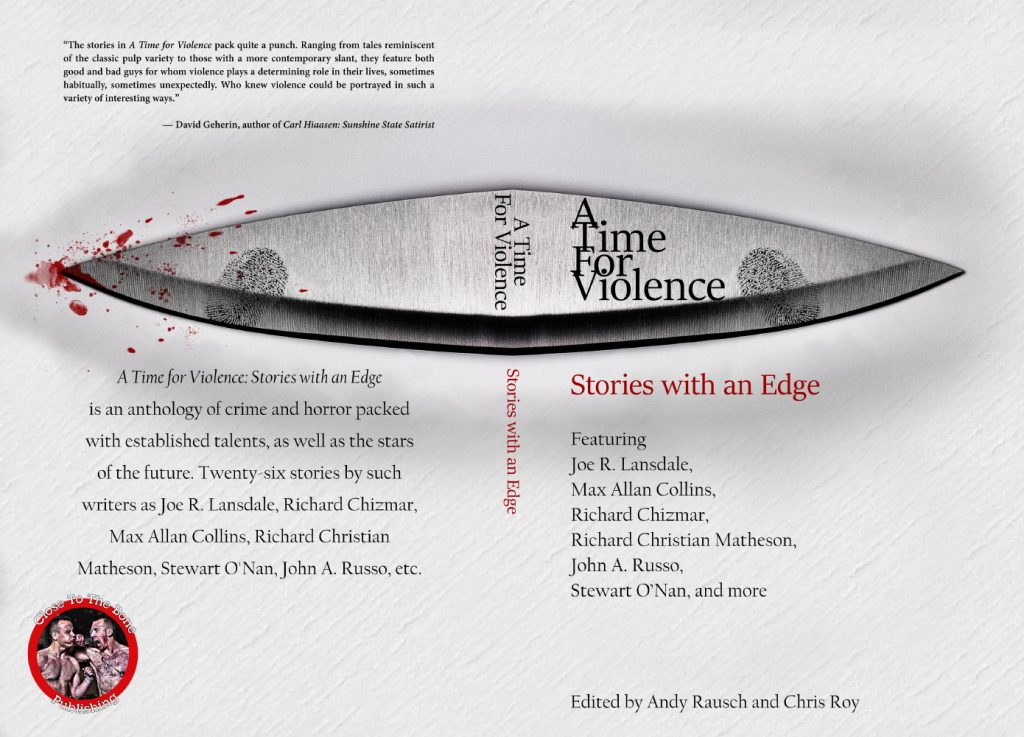
A Time For Violence, Date of Release: 2019, Author: Anthology.
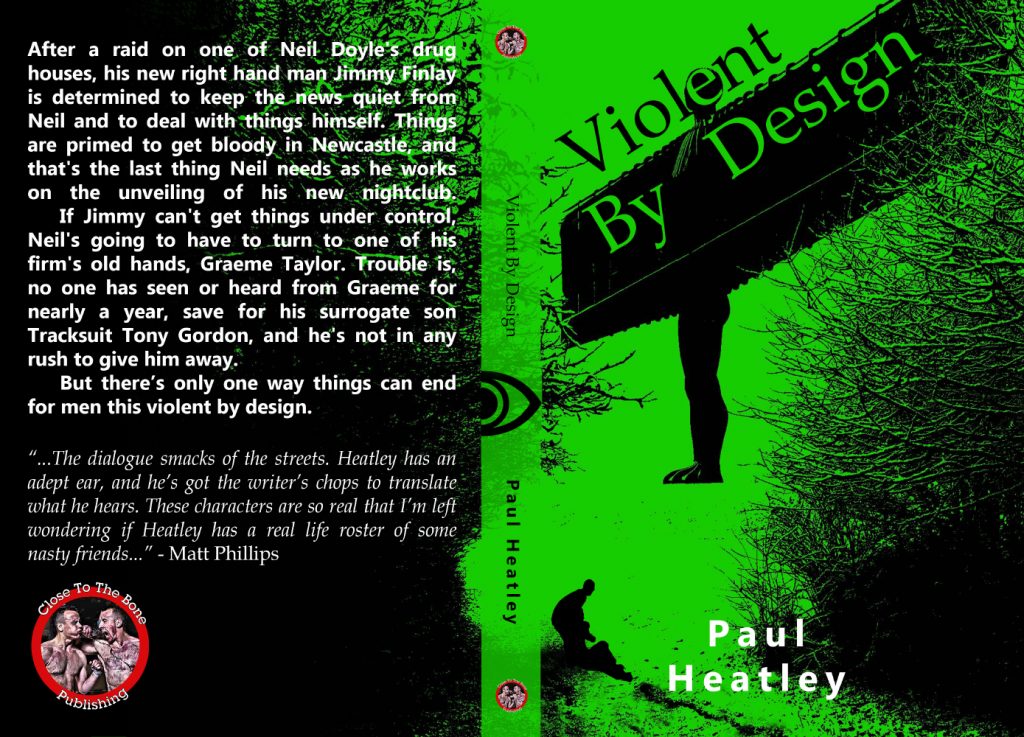
Violent By Design, Date of Release: 2018, Author: Paul Heatley.
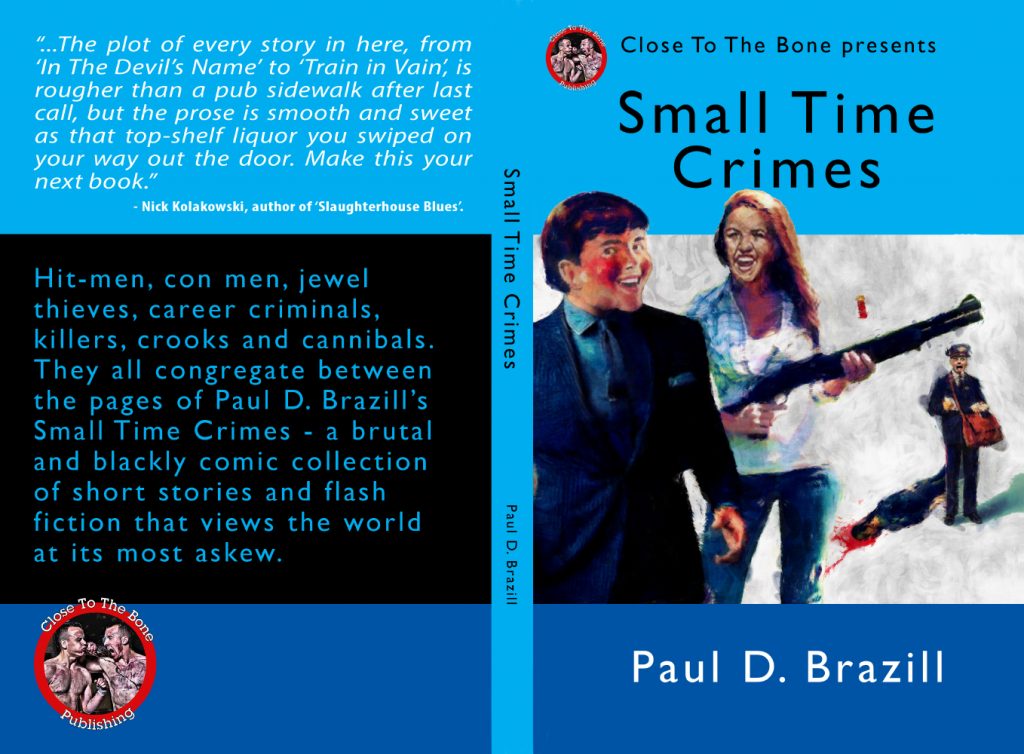
Small Time Crimes, Date of Release: 2018, Author : Paul D. Brazill.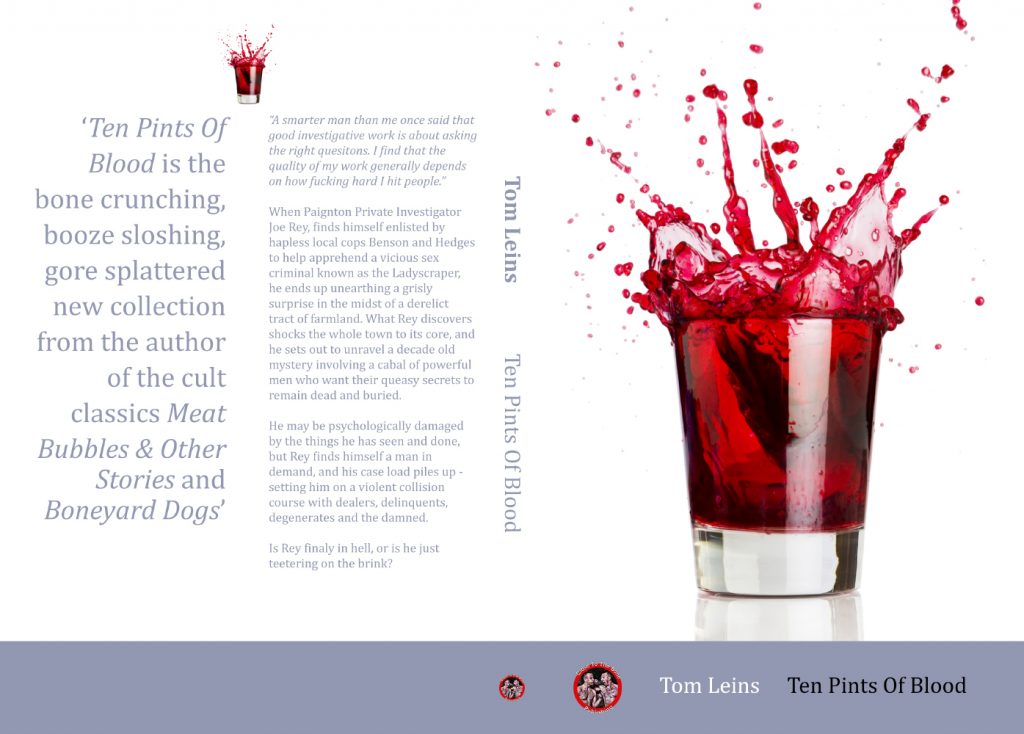
Ten Pints Of Blood, Date of Release: 2020, Author : Tom Leins.
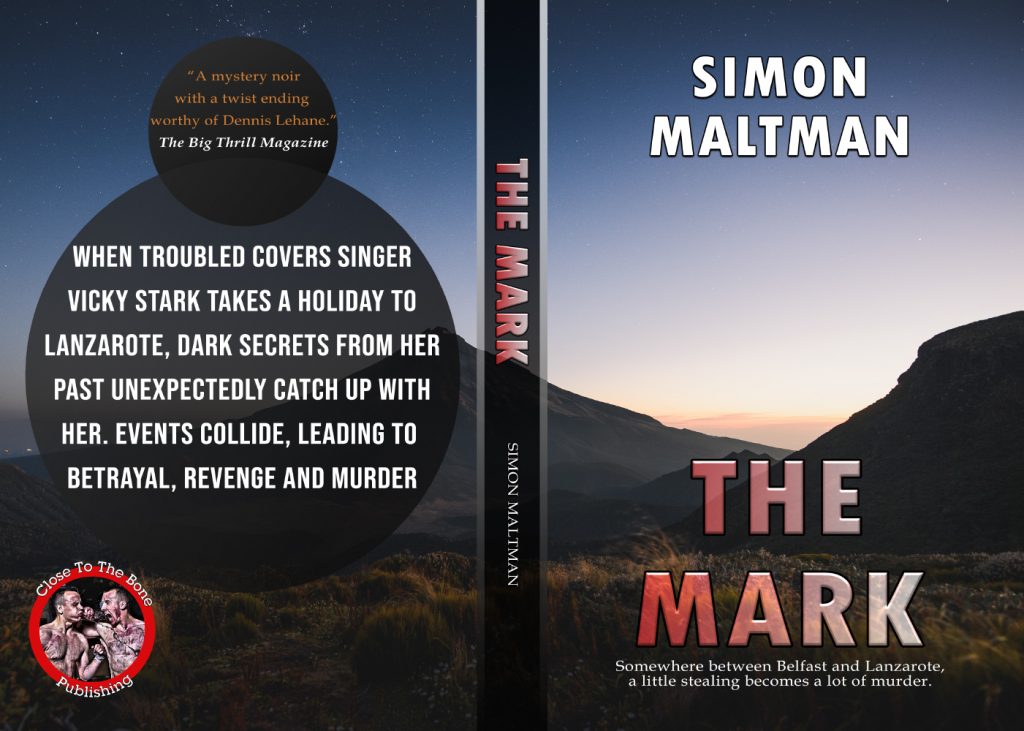
The Mark, Date of Release: 2020, Author : Simon Maltman.